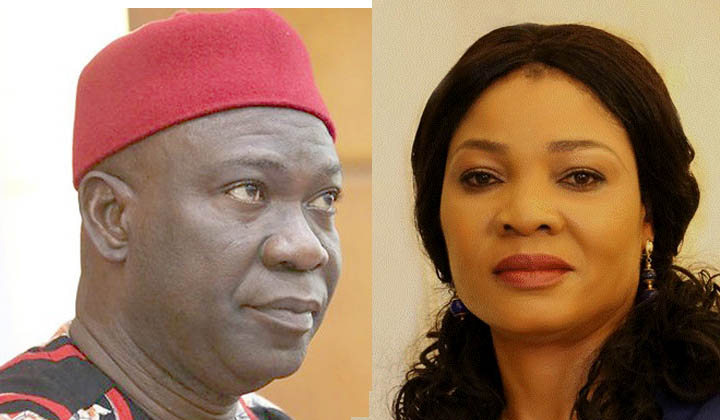Nigeria’s former Deputy Senate President, Ike Ekweremadu, his wife, and a medical doctor have been jailed for their roles in a conspiracy to harvest a man’s kidney in United Kingdom.
Senator Ekweremadu, 60, and his wife Beatrice, 56, wanted a new kidney for their 25-year-old daughter Sonia, the Old Bailey heard.
The trio were found guilty by the United Kingdom (UK) Magistrate’s Court of trafficking Nwamini from Nigeria to Britain to provide a kidney for Ekweremadu’s 25-year-old daughter, Sonia, a statement from the Crown Prosecution Service (CPS) stated.
Also read: Sen Ekweremadu, wife and doctor Risk decade-old jail
It is said to be the first such case under the Modern Slavery Act in the UK.
Their victim, a poor street trader in Lagos, was brought to the UK to provide a kidney for the Ekweremadus’ daughter.
He fled in fear of his life and walked into a police station exactly a year ago to report what had happened after the Royal Free Hospital called a halt to the private £80,000 procedure.
During a televised sentence hearing, Mr Justice Johnson recognised Ike Ekweremadu’s “substantial fall from grace”.
He described the politician as someone of high office with multiple properties, domestic staff, maids, chefs and drivers, compared with the victim who could not afford a £25 ticket to travel to Abuja.
The Senator was sentenced to nine years and eight months, his wife got a four-year and six-month imprisonment, and Dr. Obinna Obeta, 50, received 10 years.
The Ekweremadu’s daughter Sonia, who has a serious kidney condition, wept as she was cleared of the same charge.
Conviction
The Justice told the defendants: “In each of your cases the offence you committed is so serious that neither a fine nor a community sentence can be justified.”
Hugh Davies KC, prosecuting, said all three defendants were guilty of trafficking with the highest level of culpability.
Lynette Woodrow, deputy chief crown prosecutor and national modern slavery lead at the Crown Prosecution Service (CPS), said it had been “our first conviction for trafficking for the purposes of organ removal in England and Wales”.
She said it highlighted an important legal principle which made it irrelevant whether the trafficking victim knew he was coming to the UK to provide a kidney.
“With all trafficking offences,” Ms Woodrow said, “the consent of the person trafficked is no defence. The law is clear; you cannot consent to your own exploitation.”
In the wake of the case the Metropolitan Police and CPS have been working with hospitals and the Human Tissue Authority about actions they should take when concerns about organ trafficking are raised.
It was alleged that the 21-year-old street trader was to be rewarded for donating the organ to Sonia Ekweremadu, in an £80,000 private procedure at London’s Royal Free Hospital.
This case marked the first conviction under the Modern Slavery Act for an organ harvesting conspiracy.
While it is lawful to donate a kidney, it becomes criminal if money or another material advantage is rewarded.
The prosecution claimed the donor was offered up to £7,000 along with the promise of a better life in the UK.
The court was told that the donor did not understand until his first appointment with a consultant at the hospital that he was there for a kidney transplant.
According to the consultant, he had a “limited understanding” of why he was there and was “visibly relieved” at being told the operation would not go ahead.
It was claimed the man was falsely presented as Sonia Ekweremadu’s cousin in a failed attempt to persuade medics to carry out the procedure at the Royal Free Hospital.
The donor cannot be identified for legal reasons.
Sonia Ekweremadu, who takes dialysis weekly, declined to give evidence but it was said on her behalf she knew nothing of a reward offered to donors.

